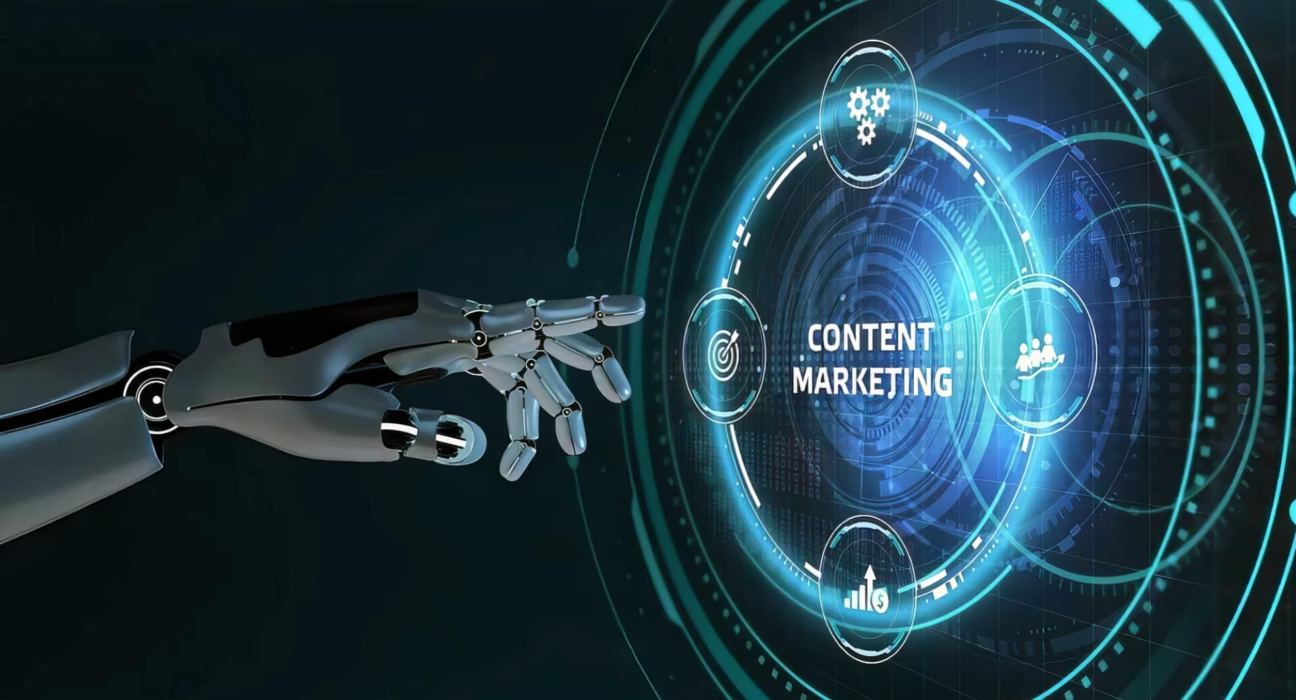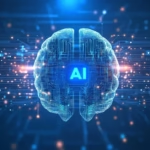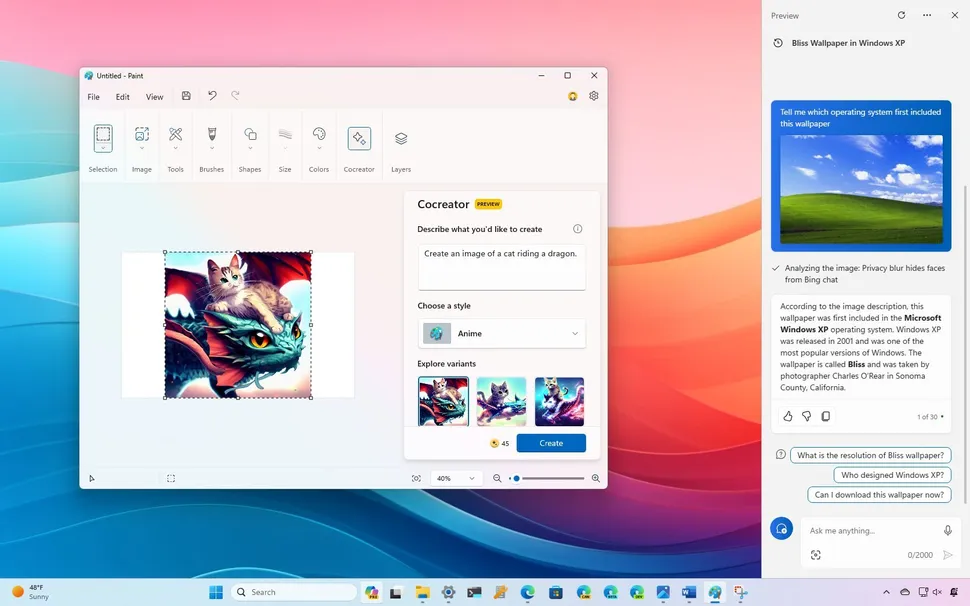The Transformative Power of AI in Content Creation
Estimated reading time: 15 minutes
Key Takeaways
- AI is dramatically reshaping how digital content is produced, optimized, and distributed, making processes faster and more cost-effective.
- AI content creation refers to using AI systems to automate and enhance the generation of various content forms.
- This technology is fundamentally transforming content marketing AI strategies and empowering marketers.
- AI content generation relies on sophisticated models trained on massive datasets, utilizing technologies like natural language processing (NLP), machine learning, and generative neural networks.
- AI can generate diverse content, including articles, social media updates, ad copy, and even audio/video.
- AI copywriting tools generate persuasive content rapidly, overcoming writer’s block and enhancing effectiveness.
- Content marketing AI integrates AI across the entire marketing workflow, accelerating production and enabling personalization.
- AI SEO tools automate crucial optimization tasks like keyword research and content scoring.
- Businesses benefit from increased efficiency, scalability, cost savings, and data-driven strategies.
- Ethical considerations, the need for human oversight, and staying abreast of rapid advancements are key challenges.
- The future points to hybrid AI-human collaboration, with AI generating a significant portion of online content.
Table of contents
- The Transformative Power of AI in Content Creation
- Key Takeaways
- Understanding AI Content Generation
- The Role of AI in Copywriting
- AI’s Impact on Content Marketing
- Leveraging AI SEO Tools
- Benefits of AI Content Creation for Businesses
- Challenges and Considerations
- The Future of AI Content Creation
- Final Thoughts
- Frequently Asked Questions
Understanding AI Content Generation
The landscape of digital content creation has undergone a dramatic shift, largely propelled by advancements in artificial intelligence. AI technologies are not merely assisting; they are fundamentally altering how content is produced, optimized, and distributed, making the entire process remarkably faster and significantly more cost-effective. At its core, AI content creation is defined as the sophisticated use of artificial intelligence systems to automate and enhance the generation of written, visual, and multimedia content. This revolutionizes marketing and communication efforts by streamlining previously labor-intensive tasks.
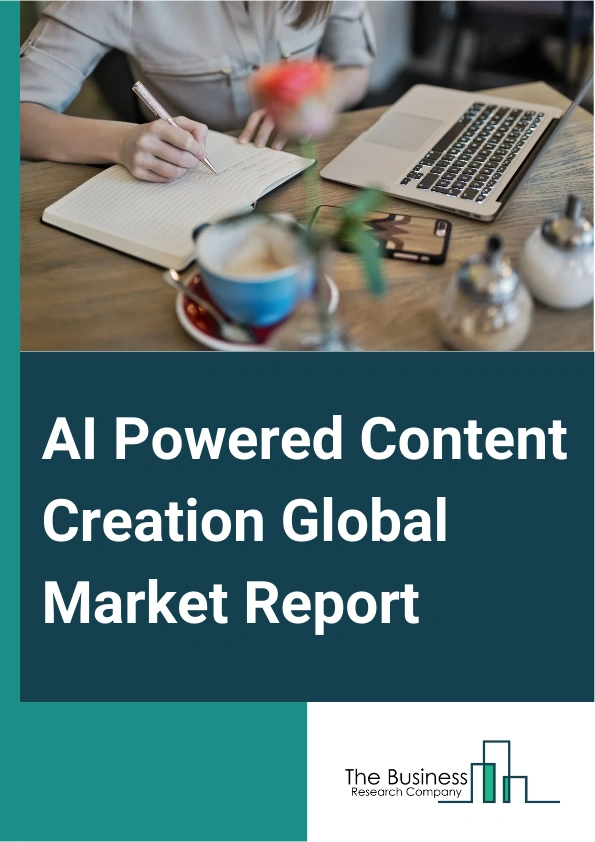
This post delves into how AI content creation is fundamentally transforming content marketing AI strategies, equipping marketers with powerful new tools and capabilities that were once the stuff of science fiction.
AI content generation itself relies on intricate computational models. These models are meticulously trained on vast datasets, enabling them to automatically create text, images, audio, and other digital assets. The foundational technologies driving this capability are none other than natural language processing (NLP), a field focused on enabling computers to understand and process human language, machine learning, which allows systems to learn from data without explicit programming, and generative neural networks, a type of AI capable of creating new, original content.
The spectrum of content that AI can now generate is impressively broad:
- Articles and blog posts, providing a significant boost to content pipelines (Sources: [https://www.axios.com/2025/10/14/ai-generated-writing-humans](https://www.axios.com/2025/10/14/ai-generated-writing-humans), [https://www.wondercraft.ai/ai-content-creation-report-2025](https://www.wondercraft.ai/ai-content-creation-report-2025)).
- Engaging social media updates tailored for different platforms.
- Persuasive ad copy and detailed product descriptions that can drive sales (Sources: [https://www.wondercraft.ai/ai-content-creation-report-2025](https://www.wondercraft.ai/ai-content-creation-report-2025), [https://www.digitalsilk.com/digital-trends/ai-statistics/](https://www.digitalsilk.com/digital-trends/ai-statistics/)).
- Audio and video content, a growing area where over 52% of creators prioritized AI use in 2025 (Source: [https://www.wondercraft.ai/ai-content-creation-report-2025](https://www.wondercraft.ai/ai-content-creation-report-2025)).

artificial intelligence content serves as the umbrella term for all media forms that are produced, enhanced, or optimized by AI tools. This signifies a new era where technology plays an integral role in creative output (Sources: [https://www.wondercraft.ai/ai-content-creation-report-2025](https://www.wondercraft.ai/ai-content-creation-report-2025), [https://www.digitalsilk.com/digital-trends/ai-statistics/](https://www.digitalsilk.com/digital-trends/ai-statistics/)).
The Role of AI in Copywriting
One of the most immediate and impactful applications of AI in content creation is in the realm of AI copywriting. These specialized tools are designed to generate highly persuasive content with remarkable speed and consistency. They can craft compelling email subject lines that boost open rates, engaging landing page copy that converts visitors into leads, and effective sales enablement materials that empower sales teams.
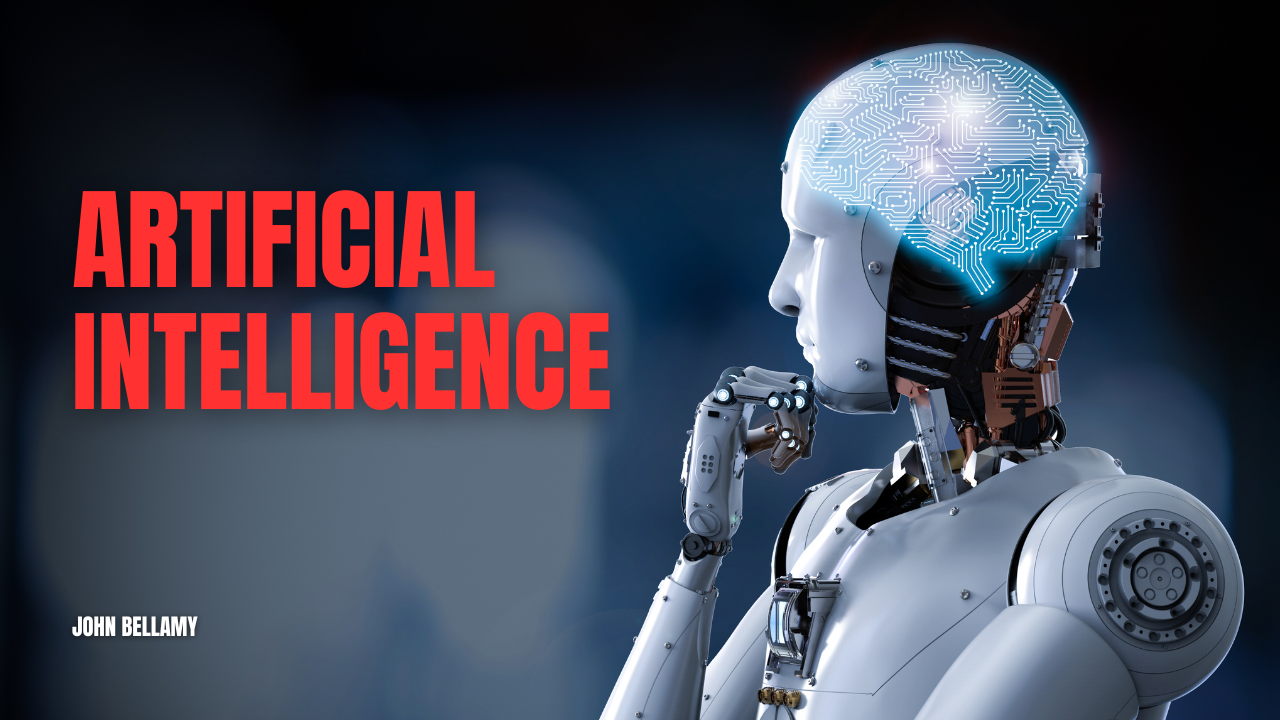
The benefits of AI for copywriting are numerous. It offers rapid idea generation, helping marketers overcome the dreaded writer’s block that can plague even the most experienced professionals. Furthermore, AI can analyze vast amounts of data to identify patterns and optimize copy for maximum effectiveness, ensuring that messages resonate with target audiences. As highlighted in industry reports, AI can significantly improve copy effectiveness through data-driven optimization (Source: [https://www.siegemedia.com/strategy/ai-writing-statistics](https://www.siegemedia.com/strategy/ai-writing-statistics)).
Leading AI copywriting applications often feature sophisticated collaborative stacks. These integrate multiple tools seamlessly, supporting the entire process from initial ideation and drafting to final editing and refinement. This integrated approach ensures that AI-generated copy not only meets quality standards but also aligns perfectly with brand messaging and marketing objectives (Source: [https://www.wondercraft.ai/ai-content-creation-report-2025](https://www.wondercraft.ai/ai-content-creation-report-2025)).
*Imagine a scenario where a marketer needs to create a new ad campaign. Instead of spending hours brainstorming headlines, AI tools can generate dozens of variations in minutes. The marketer can then select the most promising ones, perhaps tweaking them slightly, and proceed with A/B testing to identify the absolute best performer. This efficiency is a game-changer.*
AI’s Impact on Content Marketing
Content marketing AI refers to the comprehensive integration of artificial intelligence across the entire content marketing workflow. This encompasses everything from the initial stages of ideation and in-depth research to the actual writing, meticulous optimization for search engines, strategic distribution across various channels, and insightful post-campaign analysis. It’s a holistic approach that leverages AI to enhance every facet of a content strategy.

The key advantages are profound. Firstly, AI significantly accelerates content production and campaign launches, allowing businesses to be more agile and responsive to market trends (Source: [https://www.siegemedia.com/strategy/ai-writing-statistics](https://www.siegemedia.com/strategy/ai-writing-statistics)). Secondly, it enhances targeting and personalization. By analyzing real-time data, AI can help marketers understand individual customer preferences and deliver tailored content that resonates more deeply, leading to improved engagement and conversion rates (Source: [https://www.wondercraft.ai/ai-content-creation-report-2025](https://www.wondercraft.ai/ai-content-creation-report-2025)). This enables dynamic optimizations, where campaigns are continuously refined based on performance data and evolving audience insights.
The adoption rate of AI in content marketing has been nothing short of remarkable. A significant statistic emerged showing that 90% of content marketers planned to incorporate AI into their strategies in 2025, a substantial increase that underscores the technology’s perceived value and transformative potential (Source: [https://www.siegemedia.com/strategy/ai-writing-statistics](https://www.siegemedia.com/strategy/ai-writing-statistics)). This widespread embrace signals a fundamental shift in how marketing is conducted.
*Consider a large e-commerce company. With AI, they can analyze millions of customer interactions to predict which products will be popular, generate personalized product descriptions for each visitor, and create targeted email campaigns promoting those items. This level of personalization was previously unattainable at scale.*
Leveraging AI SEO Tools
For any content to be discovered, it must perform well in search engine results. This is where AI SEO tools come into play, automating crucial aspects of search engine optimization. These tools are designed to streamline and enhance the complex process of making content visible and ranking highly on search engines like Google.
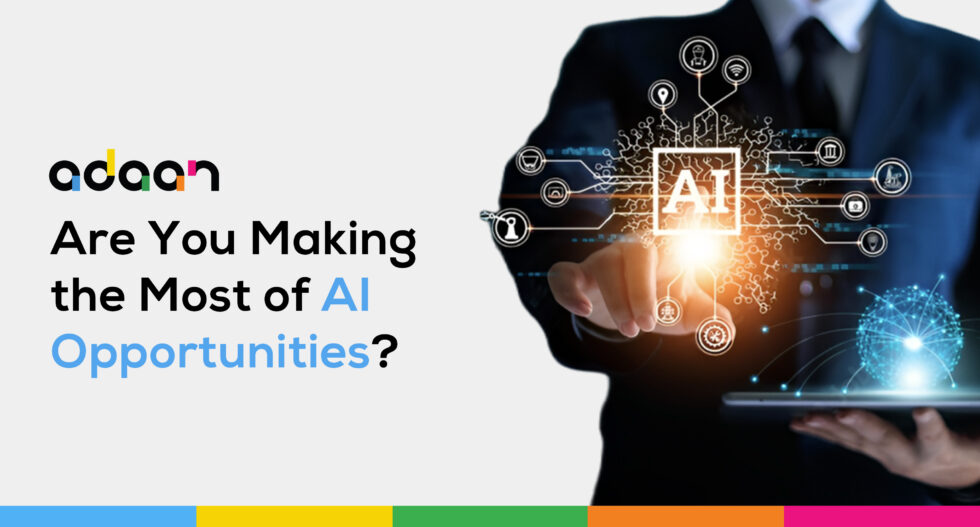
Their specific functionalities are diverse and powerful:
- Keyword research and clustering: Identifying relevant keywords and grouping them thematically to inform content strategy.
- Content quality and SEO scoring: Analyzing content for its relevance, comprehensiveness, and adherence to SEO best practices, providing actionable feedback.
- Competitor analysis: Understanding what strategies competitors are using and identifying opportunities for differentiation.
- Readability and engagement checks: Ensuring that content is not only optimized for search engines but also engaging and easy for human readers to understand.
(Sources: [https://www.siegemedia.com/strategy/ai-writing-statistics](https://www.siegemedia.com/strategy/ai-writing-statistics), [https://www.typeface.ai/blog/content-marketing-statistics](https://www.typeface.ai/blog/content-marketing-statistics)).
Crucially, these tools ensure that AI-generated content doesn’t just exist; it performs. By integrating AI SEO tools into the content creation workflow, marketers can guarantee that the content produced, whether by humans or AI, is optimized to rank effectively on search engines. This leads to measurable marketing outcomes, driving organic traffic and achieving business objectives (Keywords: AI SEO tools, AI content generation) (Sources: [https://www.siegemedia.com/strategy/ai-writing-statistics](https://www.siegemedia.com/strategy/ai-writing-statistics), [https://www.typeface.ai/blog/content-marketing-statistics](https://www.typeface.ai/blog/content-marketing-statistics)).
*A blogger using an AI SEO tool might discover that while their initial article covered a topic well, it missed a key long-tail keyword that their competitors were ranking for. The tool could suggest adding a section addressing this keyword, thereby improving the article’s overall SEO performance.*
Benefits of AI Content Creation for Businesses
The adoption of AI in content creation is not just a trend; it offers tangible benefits that can significantly impact a business’s bottom line and operational efficiency. One of the most compelling advantages is the substantial increase in efficiency and scalability. AI-powered tools allow teams to produce content at a vastly greater volume and speed than manual methods alone could ever achieve (Sources: [https://www.siegemedia.com/strategy/ai-writing-statistics](https://www.siegemedia.com/strategy/ai-writing-statistics), [https://www.wondercraft.ai/ai-content-creation-report-2025](https://www.wondercraft.ai/ai-content-creation-report-2025)).

This enhanced productivity translates directly into cost savings. By automating repetitive tasks and reducing the need for extensive manual labor, businesses can lower operational costs while simultaneously improving the consistency and overall quality of their content. This is a critical factor for companies looking to optimize their budgets without compromising on brand messaging (Source: [https://www.digitalsilk.com/digital-trends/ai-statistics/](https://www.digitalsilk.com/digital-trends/ai-statistics/)).
Furthermore, AI empowers businesses to implement truly data-driven strategies. Content performance can be continuously monitored, analyzed, and adapted in real-time, ensuring that marketing efforts remain relevant and effective. This agility is crucial in today’s fast-paced digital environment.
The faster time-to-market is another significant benefit. Automated workflows can drastically shorten campaign cycles, allowing businesses to bring new products, services, or marketing initiatives to their audience much more quickly.
It is important to note that while AI can enhance quality, its best results are often achieved when used in conjunction with human oversight. This collaborative approach ensures that AI-generated content maintains a high level of accuracy, creativity, and brand alignment, leading to improved consistency and quality overall (Source: [https://www.siegemedia.com/strategy/ai-writing-statistics](https://www.siegemedia.com/strategy/ai-writing-statistics)).
*Consider a startup that needs to build an online presence quickly. By using AI for initial content drafts and SEO optimization, they can launch their website and marketing campaigns much faster and at a lower cost than a traditional agency approach, allowing them to focus resources on product development.*
Challenges and Considerations
Despite the immense potential, the integration of AI in content creation is not without its challenges and requires careful consideration. Ethical issues are paramount. There is a growing emphasis on transparency, ensuring that audiences are aware when content has been generated or significantly assisted by AI. Responsible use is key to maintaining trust and credibility.

A critical aspect is the essential need for human editing. While AI can generate text, it may sometimes produce outputs that are generic, lack nuance, or even contain inaccuracies. Human editors play a vital role in refining AI-generated content, ensuring it maintains a unique brand voice, adheres to factual accuracy, and resonates authentically with the target audience.
Overreliance on automation can also be a pitfall. If AI is used without sufficient human input or critical review, it can stifle creativity and lead to a loss of originality in content. Striking the right balance between AI efficiency and human ingenuity is crucial.
The rapid pace of AI development presents another challenge: keeping up with the latest technologies and best practices. What is cutting-edge today may be commonplace tomorrow, requiring continuous learning and adaptation from marketers and content creators (Sources: [https://www.siegemedia.com/strategy/ai-writing-statistics](https://www.siegemedia.com/strategy/ai-writing-statistics), [https://www.axios.com/2025/10/14/ai-generated-writing-humans](https://www.axios.com/2025/10/14/ai-generated-writing-humans)).
A notable consideration is the potential impact on website traffic. As AI-generated content becomes more prevalent, search engine algorithms may evolve, potentially leading to shifts in visibility. However, while general traffic might fluctuate, there is an expectation that high-value traffic will increase as AI enables more strategic and personalized search integrations (Source: [https://www.siegemedia.com/strategy/ai-writing-statistics](https://www.siegemedia.com/strategy/ai-writing-statistics)).
*A company that uses AI to generate thousands of basic product descriptions might see a dip in traffic if those descriptions are seen as low-value by search engines. However, if they use AI to create in-depth, personalized buying guides, they might attract a more engaged and valuable audience.*
The Future of AI Content Creation
Industry experts and futurists predict a continued and accelerated evolution in AI content creation. The prevailing vision is one of hybrid teams, where AI and human creators collaborate closely. AI will increasingly act as a powerful co-pilot, augmenting human creativity and efficiency, rather than a complete replacement. This partnership is expected to unlock new levels of content quality and innovation (Keywords: AI content creation) (Sources: [https://www.wondercraft.ai/ai-content-creation-report-2025](https://www.wondercraft.ai/ai-content-creation-report-2025), [https://www.siegemedia.com/strategy/ai-writing-statistics](https://www.siegemedia.com/strategy/ai-writing-statistics)).
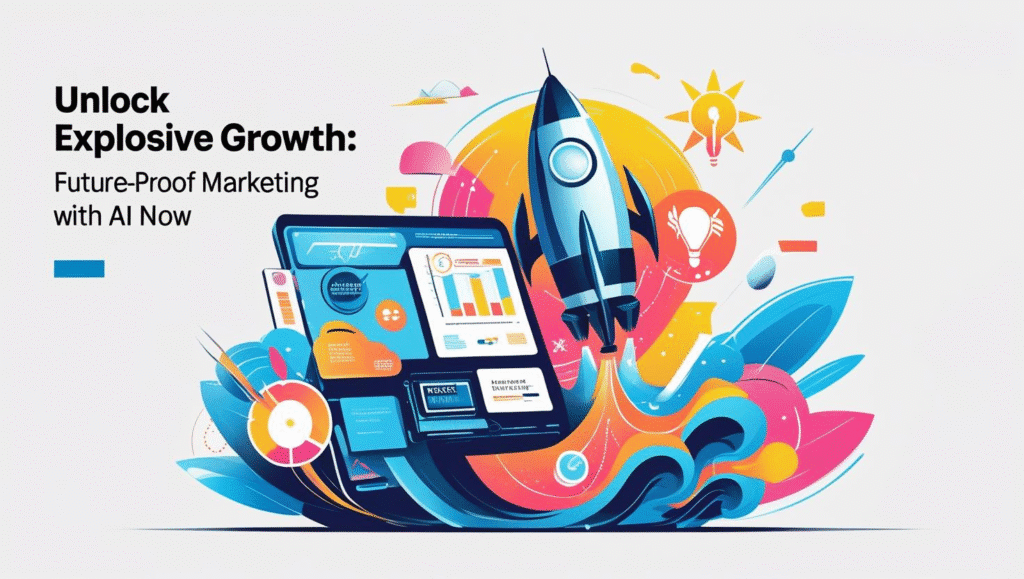
Projections suggest a significant shift in the online content landscape. It is estimated that by 2026, as much as 90% of all online content could be AI-generated. This staggering figure points to a fundamental alteration in marketing dynamics, content consumption, and the very nature of digital information (Source: [https://www.mend.io/blog/generative-ai-statistics-to-know-in-2025/](https://www.mend.io/blog/generative-ai-statistics-to-know-in-2025/)).
Looking ahead, AI will become even more deeply integrated across every stage of the content lifecycle. From the initial spark of an idea and the complex process of production to the critical analysis of performance and the nuanced art of personalization, AI will be an indispensable tool. This pervasive integration promises more intelligent, efficient, and effective content strategies than ever before (Sources: [https://www.siegemedia.com/strategy/ai-writing-statistics](https://www.siegemedia.com/strategy/ai-writing-statistics), [https://www.wondercraft.ai/ai-content-creation-report-2025](https://www.wondercraft.ai/ai-content-creation-report-2025)).
*Imagine a future where AI not only drafts your blog post but also suggests optimal distribution channels based on real-time audience engagement data, creates personalized video summaries for different social media platforms, and then analyzes the entire campaign’s ROI, providing insights for the next iteration.*
Final Thoughts
AI content creation is not just a futuristic concept; it is a present reality that is fundamentally reshaping the domain of digital marketing. It offers unparalleled enhancements in efficiency, scalability, and strategic intelligence. By automating complex tasks and providing data-driven insights, AI empowers marketers to achieve more with fewer resources (Sources: [https://www.siegemedia.com/strategy/ai-writing-statistics](https://www.siegemedia.com/strategy/ai-writing-statistics), [https://www.wondercraft.ai/ai-content-creation-report-2025](https://www.wondercraft.ai/ai-content-creation-report-2025)).

Key components like AI copywriting, the broad category of artificial intelligence content, the strategic integration of content marketing AI, and the essential optimization capabilities of AI SEO tools are all critical drivers of this ongoing transformation. Each plays a vital role in optimizing the entire content lifecycle (Keywords: AI copywriting, artificial intelligence content, content marketing AI, AI SEO tools) (Sources: [https://www.siegemedia.com/strategy/ai-writing-statistics](https://www.siegemedia.com/strategy/ai-writing-statistics), [https://www.typeface.ai/blog/content-marketing-statistics](https://www.typeface.ai/blog/content-marketing-statistics)).
For businesses and individuals looking to thrive in this evolving digital landscape, actively experimenting with AI-powered tools is no longer optional; it’s a necessity. Embracing this evolution allows for maximizing the effectiveness and agility of your content strategies, ensuring you remain competitive and at the forefront of innovation. Dive in, explore the possibilities, and harness the power of AI to elevate your content creation efforts (Call to action, Keywords: AI content creation) (Source: [https://www.siegemedia.com/strategy/ai-writing-statistics](https://www.siegemedia.com/strategy/ai-writing-statistics)).

Discover how AI is changing the world and profoundly transforming everyday life.
Explore 10 Cutting Edge AI Technologies Shaping the Future.
Learn about 5 Innovative Ways to Use AI Strategies to Boost Productivity.
Understand how AI is transforming businesses in 2025.
Explore game-changing AI-powered productivity apps.
Frequently Asked Questions
Q1: What is AI content creation?
A1: AI content creation is the use of artificial intelligence systems to automate and enhance the generation of written, visual, and multimedia content for marketing and communication purposes.
Q2: What are the main technologies behind AI content generation?
A2: The core underlying technologies include natural language processing (NLP), machine learning, and generative neural networks.
Q3: Can AI generate different types of content?
A3: Yes, AI can generate articles, blog posts, social media updates, ad copy, product descriptions, and even audio and video content.
Q4: What are the benefits of AI for copywriting?
A4: AI copywriting tools offer rapid idea generation, help overcome writer’s block, and improve copy effectiveness through data-driven optimization.
Q5: How does AI impact content marketing?
A5: Content marketing AI accelerates content production, enhances targeting and personalization, enables dynamic optimizations, and provides deeper audience insights.
Q6: What do AI SEO tools do?
A6: AI SEO tools automate keyword research, content scoring, competitor analysis, and readability checks to improve search engine performance.
Q7: What are the main challenges of using AI in content creation?
A7: Challenges include ethical considerations, the need for human editing, avoiding overreliance on automation, and keeping pace with rapid technological advancements.
Q8: What is the future outlook for AI content creation?
A8: The future points towards hybrid AI-human collaboration, with AI potentially generating a significant portion of online content and becoming integrated across the entire content lifecycle.


